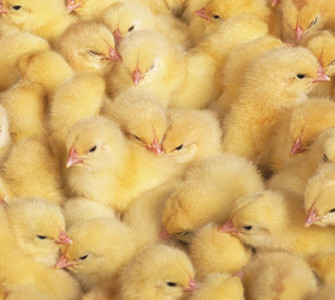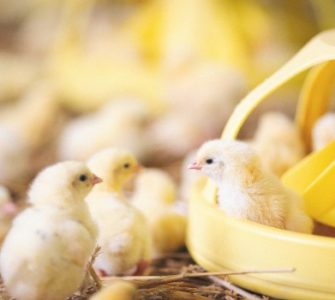Controlling infectious bronchitis in broilers starts with breeder vaccination
Protocols vary widely, but vaccinating broiler breeders against infectious bronchitis virus (IBV) remains an important strategy for protecting broiler progeny against the virus, according to panelists at a roundtable on “Infectious Bronchitis: Evolving strategies for an evolving virus.”
Guillermo Zavala, DVM, PhD, founder of Avian Health International and an adjunct professor, University of Georgia, said although IBV maternal-antibody transfer isn’t very protective for progeny, it probably contributes partially to protecting young broilers as well as protecting breeders.
“It wasn’t until we introduced the [IBV] Arkansas vaccine in the breeder population that things were buffered in broilers a little bit,” he said at the roundtable.
Zavala said it’s interesting that among poultry companies in Georgia, most rely on live vaccines and don’t use killed vaccines for bronchitis protection. “I think it’s very important to complement vaccination with killed vaccines and, of course, to use an array of strains that will help you increase broad protection, if you can.”
Extended immunity
Asked if using killed vaccines in breeders expands protection to broilers, Zavala said they may not “expand the spectrum of protection, but you can certainly raise your antibody levels. You can also extend the longevity of that immune response…” he added.
Sarah Tilley, DVM, Fieldale Farms, said her company vaccinates pullets and breeders with IBV strains they and their progeny will encounter.
During the pullet-rearing stage, they vaccinate birds at 3, 7 and 16 weeks of age with multiple, live IBV strains, which are different combinations of IBV Arkansas, Georgia 98 and Massachusetts. The strategy, she explained, is to expose birds to multiple strains before going into lay.
In the pullet phase, they administer live IBV and Newcastle disease (ND) vaccines 5 to 7 days apart to prevent replication-site interactions. Once moved to the hen house, breeders are boosted with a live IBV/ND program every 10 weeks.
They obtain routine serology from breeders at 26 and 58 weeks of age to monitor immunity to IBV, ND virus, infectious bursal disease virus and reovirus to see what hens have been exposed to, she said.
‘Takes the edge off’
David French, DVM, formerly with Sanderson Farms and now with the University of Georgia, said vaccination protects breeders against IBV while they are in production, and it also “takes the edge off” the IBV vaccine administered to broilers.
“We use a killed vaccine in breeders,” he said, because using a live bronchitis vaccine might contribute to eggshell-quality problems.
Mark Burleson, DVM, Wayne Farms, said his company’s breeders received a live IBV vaccine at 2, 6, 10 and 16 weeks of age. “They get nothing else for the life of the bird. We collect serology at 26 and 50 weeks and we do see some increasing titers from time to time, but we haven’t pinpointed bronchitis as being a major cause of any kind of eggshell or production issues. We try to present the hen with everything she might see during lay in that geographic area. That’s our goal.”
Meagan Slater, DVM, said in Pennsylvania, where she worked before she joined Mountaire Farms, most broiler breeders were vaccinated with live, primer vaccines and then at least one killed vaccine.
“In fact, most layers there actually received two killed vaccines before they were moved. A large percentage of companies do not boost throughout the life of the flocks, so they try to get the antibodies up front. So, for good or bad, that’s what they’re doing. It seems to be working and helping to protect against some shell-quality issues,” she said.
Kalen Cookson, DVM, director of clinical research, Zoetis, said in his experience a good, diverse live vaccination program in long-lived birds followed by a killed IBV vaccine works well.
“From what we’ve seen, if you have good primers up front and a good killed response, you have good immunity on board when birds are placed on the farm,” he said.
Cookson believes the live/killed vaccination strategy is beneficial for breeders when there are novel variants circulating.
“IBV is more of an insidious disease in long-lived birds, just because they’re not under the intense stress that broilers are. It’s not always as obvious if you do have a novel bronchitis exposure, but it might be there so you’re at least hedging your bets and protecting yourself a little bit,” he said.
Editor’s note: This report was adapted from “Infectious Bronchitis: Evolving Strategies for an Evolving Virus,” highlights of a roundtable discussion sponsored by Zoetis. To download a free copy, click here.
Posted on April 3, 2020

















